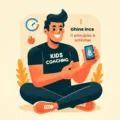Developing strong social skills is crucial for children’s overall growth and wellbeing. As parents and caregivers, we play a vital role in nurturing these essential life skills. In this article, we’ll explore fun and engaging social skills activities for kids, complete with free printables to make learning enjoyable and accessible for everyone.
Why Social Skills Matter for Children
Social skills are the foundation for building meaningful relationships, communicating effectively, and navigating the complexities of human interaction. For children, developing these skills early on can lead to:
- Improved self-confidence and self-esteem
- Better academic performance
- Stronger friendships and peer relationships
- Enhanced emotional intelligence
- Greater success in future personal and professional endeavors
By engaging in social skills activities, children learn to express themselves, understand others, and develop empathy – all crucial components of a compassionate and well-rounded individual.
Fun Social Skills Activities for Kids
Here are some enjoyable activities that can help children develop their social skills:
1. Emotion Charades
This game helps children recognize and express different emotions. Write various emotions on slips of paper and have kids take turns acting them out while others guess. This activity enhances emotional awareness and non-verbal communication skills.
2. Cooperative Storytelling
Gather in a circle and start a story with one sentence. Each child adds a sentence to continue the story. This activity promotes active listening, creativity, and teamwork.
3. “Getting to Know You” Bingo
Create bingo cards with squares containing different traits or experiences (e.g., “has a pet,” “likes pizza”). Children mingle and find peers who match the descriptions, promoting conversation and connection.
4. Role-Playing Scenarios
Present children with common social situations and have them act out appropriate responses. This helps them practice problem-solving and conflict resolution in a safe environment.
5. Compliment Circle
Gather in a circle and have each child give a genuine compliment to the person next to them. This activity fosters positivity, kindness, and appreciation for others.
Free Printables to Enhance Social Skills Learning
To support your child’s social skills development, we’ve created some free printables you can use at home or in the classroom:
- Emotion Flashcards: Help children identify and name different emotions
- Conversation Starter Cards: Encourage meaningful discussions and practice active listening
- “My Feelings” Journal Pages: Allow children to reflect on their emotions and experiences
- Social Skills Scenarios Worksheets: Present common social situations for discussion and problem-solving
- Kindness Calendar: Encourage daily acts of kindness and empathy
You can download these printables for free at the end of this article. They’re designed to make learning social skills fun and interactive for children of all ages.
Incorporating Social Skills Activities into Daily Life
While structured activities are beneficial, it’s equally important to incorporate social skills learning into everyday situations. Here are some ideas:
- Practice active listening during family meals by encouraging each family member to share about their day
- Model empathy and kindness in your interactions with others
- Encourage your child to express their feelings and validate their emotions
- Create opportunities for your child to interact with peers in various settings
- Discuss characters’ emotions and actions while reading books or watching movies together
Remember, consistency is key. Regular practice and reinforcement will help these skills become second nature to your child.
The Role of Parents and Caregivers
As adults, we play a crucial role in nurturing children’s social skills. Here are some ways to support their development:
- Be a positive role model by demonstrating good social skills in your own interactions
- Provide a safe and supportive environment for children to practice and make mistakes
- Offer praise and encouragement when children display positive social behaviors
- Help children understand and manage their emotions through open communication
- Seek professional help if you notice persistent social difficulties
Remember, every child develops at their own pace. Be patient and supportive throughout their journey of social skills development.
FAQ: Social Skills Activities for Kids
Q1: At what age should I start teaching my child social skills?
A1: It’s never too early to start! Even infants begin learning social skills through interactions with caregivers. As children grow, continue to model and teach age-appropriate social skills.
Q2: How can I help my shy child improve their social skills?
A2: Start with small, comfortable social situations and gradually increase exposure. Encourage participation in activities they enjoy, as shared interests can facilitate connections.
Q3: Are there any books that can help teach social skills to kids?
A3: Yes, many great books address social skills. Some popular options include “How to Be a Friend: A Guide to Making Friends and Keeping Them” by Laurie Krasny Brown and “What Should Danny Do?” by Ganit and Adir Levy.
Q4: How can I address my child’s aggressive behavior towards peers?
A4: Teach alternative ways to express emotions, practice calm-down techniques, and role-play appropriate responses to frustration. Consistently reinforce positive behaviors and seek professional help if needed.
Q5: Can technology help in developing social skills?
A5: While face-to-face interactions are crucial, certain apps and games can supplement social skills learning. Look for options that encourage cooperation, problem-solving, and emotional awareness. Always balance screen time with real-world social interactions.
Developing strong social skills is a lifelong journey, and it’s one of the greatest gifts we can give our children. By incorporating these activities and printables into your daily routine, you’re helping your child build a foundation for meaningful relationships and personal growth. Remember to approach this process with patience, love, and understanding. Every small step towards better social skills is a victory worth celebrating!
Don’t forget to download our free printables to support your child’s social skills development. Here’s to raising compassionate, socially adept children who will make the world a better place!









